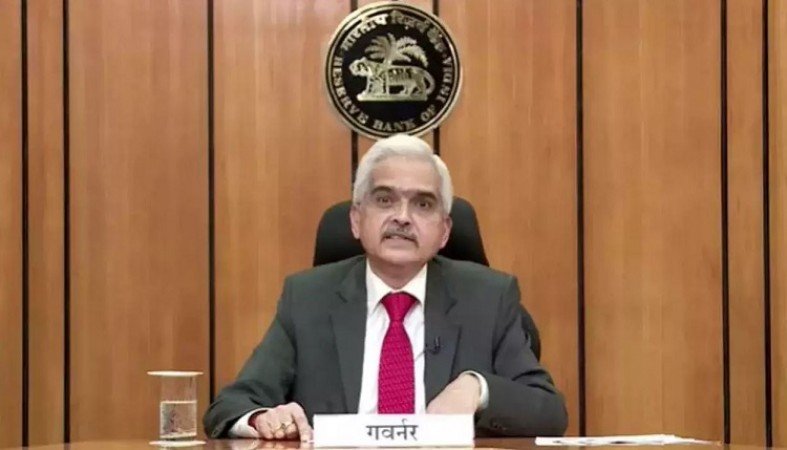
RBI MPC MEETING LIVE: Shaktikanta Das, governor of the Reserve Bank of India (RBI), unveiled eight additional initiatives on June 8 to enhance and modify the regulations for various areas. These actions include extending the use of e-RUPI vouchers and allowing banks to issue RuPay Prepaid Forex cards in order to give Indians going abroad more payment options.
1. Scheduled Commercial Banks (SCB) can set their own limits for borrowing in Call and Notice Money Markets.
"With a view to providing greater flexibility for managing their liquidity, it has been decided that Scheduled Commercial Banks (SCB), excluding small finance banks, can set their own limits for borrowing in Call and Notice Money Markets within the prescribed prudential limits for inter-bank liabilities," RBI Governor Das said.
For Scheduled Commercial Banks the current regulatory standards set prudential limits for outstanding borrowing in Call and Notice Money Markets. SCBs can now set their own borrowing caps in Call and Notice Money Markets as long as they stay within the established restrictions.
2. Widening of the scope of the Framework for the Resolution of Stressed Assets: Under the Prudential Framework, which currently applies to SCBs and some NBFCs, compromise settlement is accepted as a resolution method for non-performing assets (NPA). "It is proposed to issue comprehensive guidelines on compromise settlements and technical write-offs, which will now be applicable to all regulated entities including co-operative banks," added Das.
It is also suggested to rationalise the current prudential standards on the restructuring of borrower accounts impacted by natural disasters, Das continued.
3. Default loss guarantee arrangement in digital lending: The regulatory framework for digital lending was released by the Reserve Bank in August/September 2022. The RBI has made the decision to publish guidelines on Default Loss Guarantee arrangements in Digital Lending in order to further promote responsible innovation and prudent risk management. The RBI goveror said, this will make it easier for the ecosystem of online lending to flourish in a controlled manner and increase the penetration of credit in the economy.
Also Read-
4. Timelines for achieving priority sector lending targets by UCBs extended: The Reserve Bank has launched a number of efforts in recent years to enhance financial inclusion and boost the UCB (Urban Cooperative Banks) sector. The 2020 adjustment of the priority sector lending targets for UCBs is one of these approaches.
A glide path up to March 2024 was created for a smooth transition to reach the updated PSL targets while modifying the PSL targets. While certain UCBs have already achieved the necessary benchmarks as of March 2023, it is now necessary to lessen the implementation difficulties that some UCBs are currently experiencing. The deadlines for meeting the targets will now be extended by two more years, to March 2026. Additionally, UCBs that have achieved the goals as of March 31, 2023, would get the appropriate incentives, Das said.
5. Rationalisation of licensing framework: The last assessment of the Authorised Persons (APs) licencing mechanism conducted under FEMA was in March 2006. It has been determined to rationalise and simplify the licencing framework for APs in light of recent developments, including progressive deregulation under FEMA, and to efficiently satisfy the rising requirements of the rapidly expanding Indian economy, said Governor Das. "This is expected to improve the efficiency in the delivery of foreign exchange facilities to various segments of users including common persons, tourists, and businesses," he said.
Also Read-
6. Expanding the scope and reach of e-RUPI vouchers: By (i) allowing non-bank prepaid payment instruments (PPI) issuers to issue e-RUPI vouchers, (ii) facilitating issuance of e-RUPI vouchers on behalf of individuals, and (iii) streamlining the issuance, redemption, etc. process, Governor Das suggested to broaden the scope and reach of e-RUPI vouchers. These steps will increase the number of users who can take advantage of eRUPI digital vouchers and deepen the adoption of digital payments in the nation.
Also Read-
7. Streamlining the Bharat Bill Payment System: Since August 2017, the Bharat Bill Payment System (BBPS) has been in use. In December 2022, the BBPS's purview was extended once more. "It is proposed to streamline the process flow of transactions and membership criteria for operating units to further enhance the efficiency of the BBPS system and to encourage greater participation," he said.
Also Read-
8. RuPay cards: Banks in India are issuing RuPay Debit and Credit cards, which are becoming more widely accepted worldwide. The decision to allow banks to issue RuPay Prepaid Forex cards has been made. "This will increase the payment choices for Indians visiting other countries. Additionally, foreign jurisdictions will be able to issue RuPay cards. These actions will increase the use and acceptance of RuPay cards throughout the world, he said.